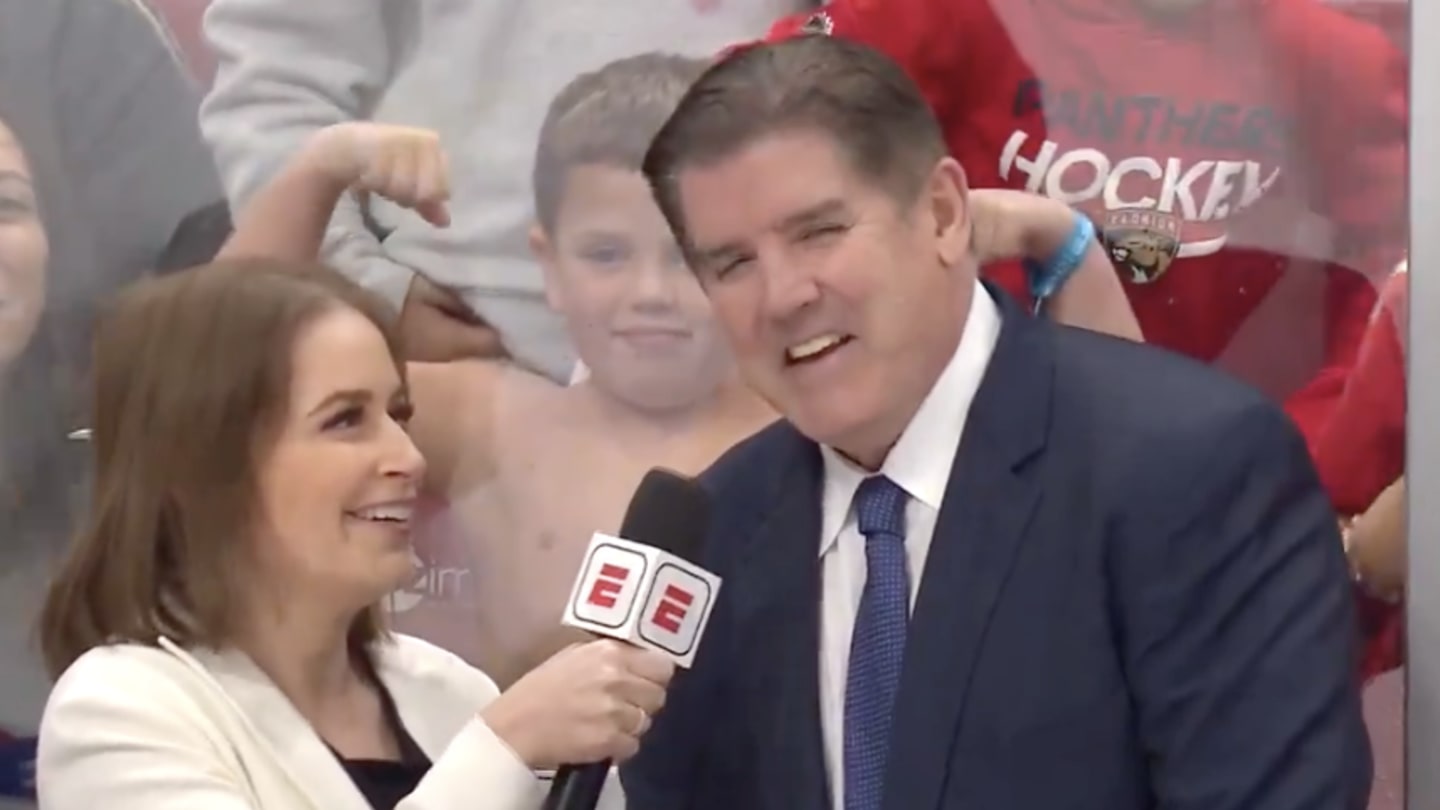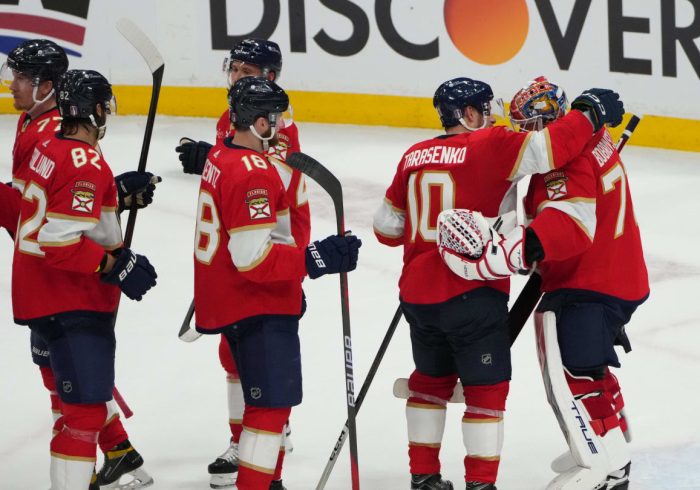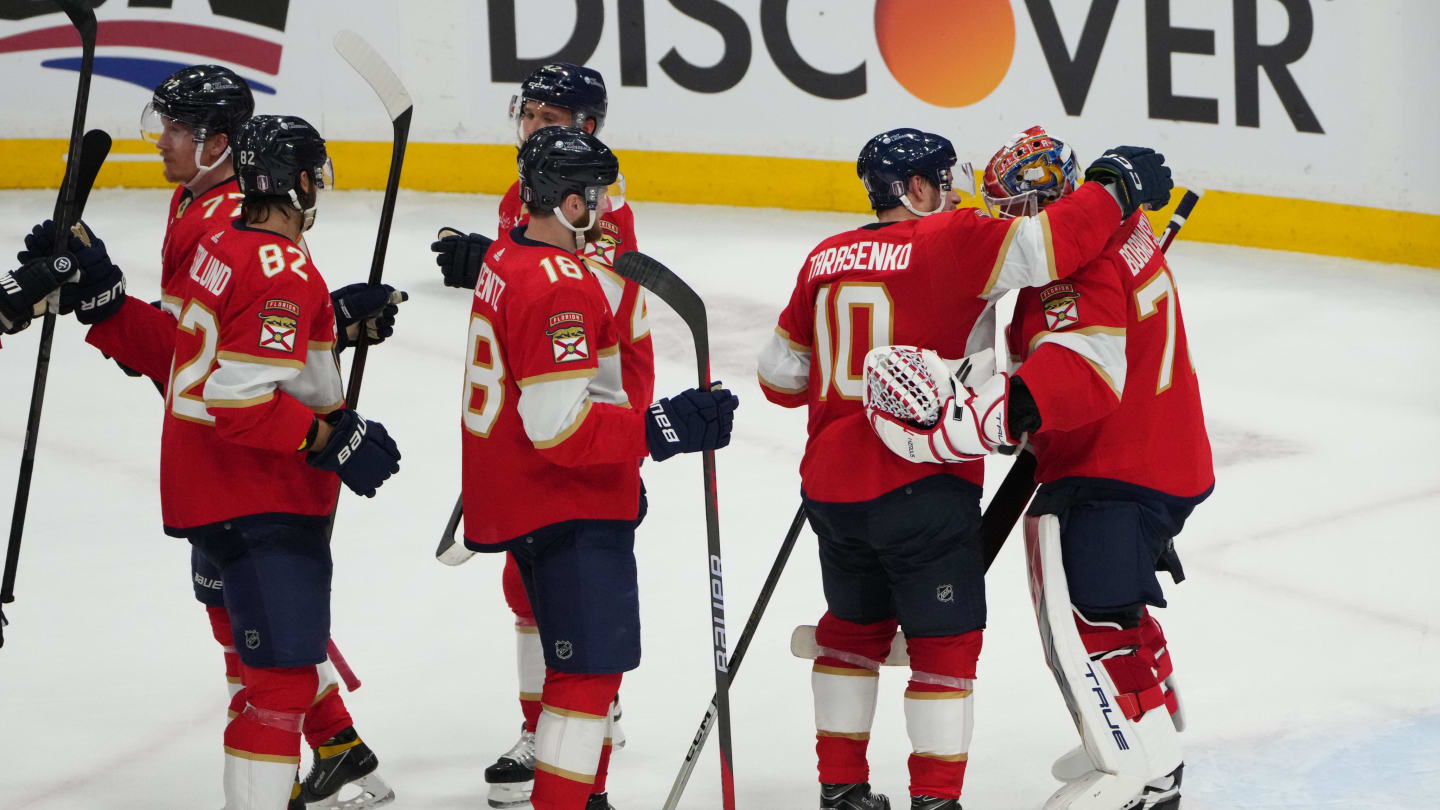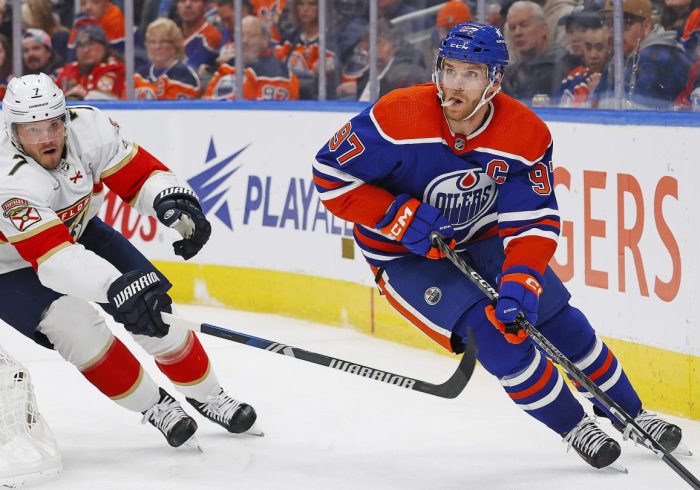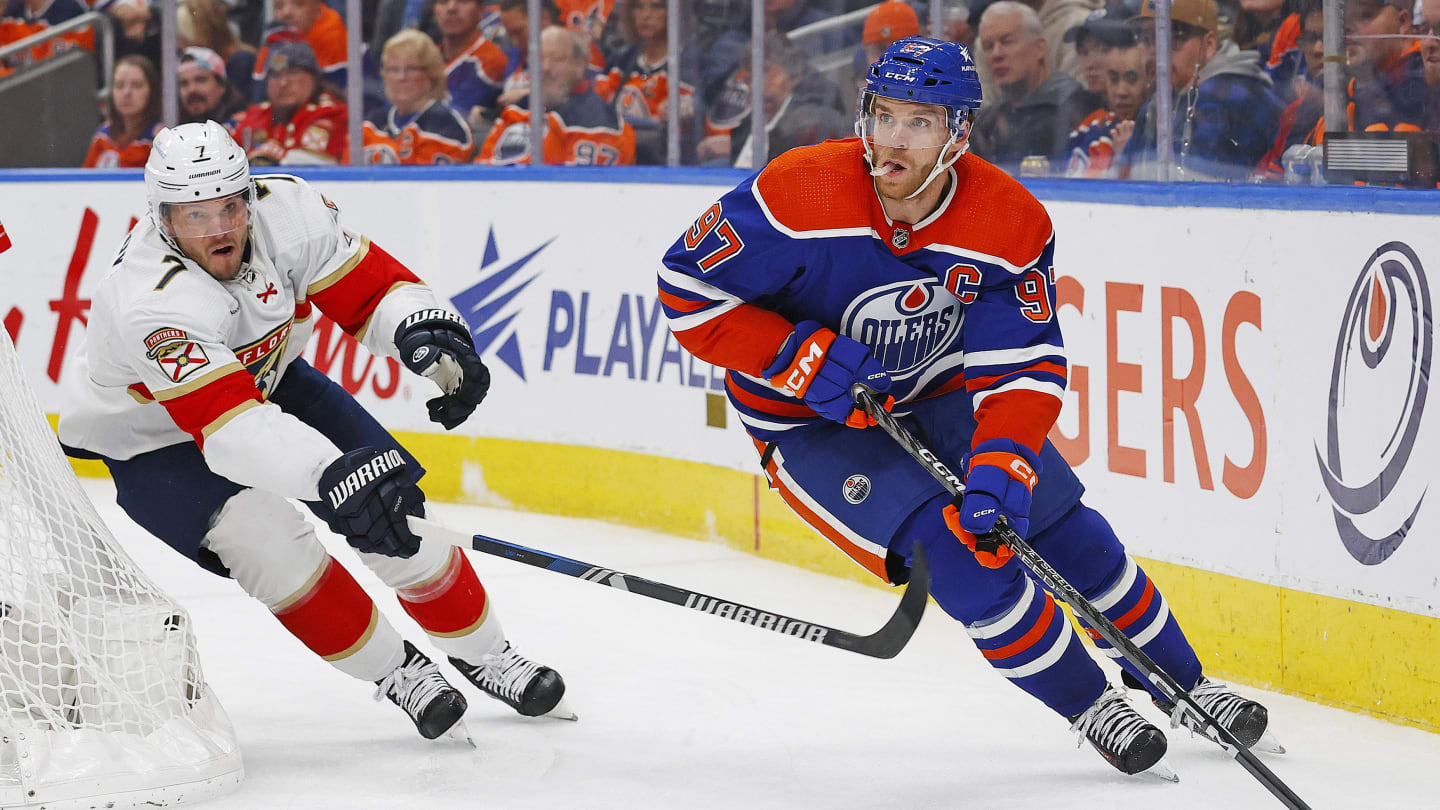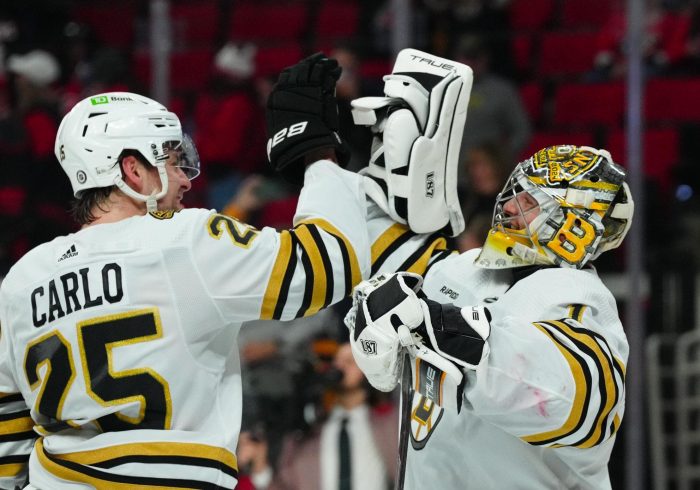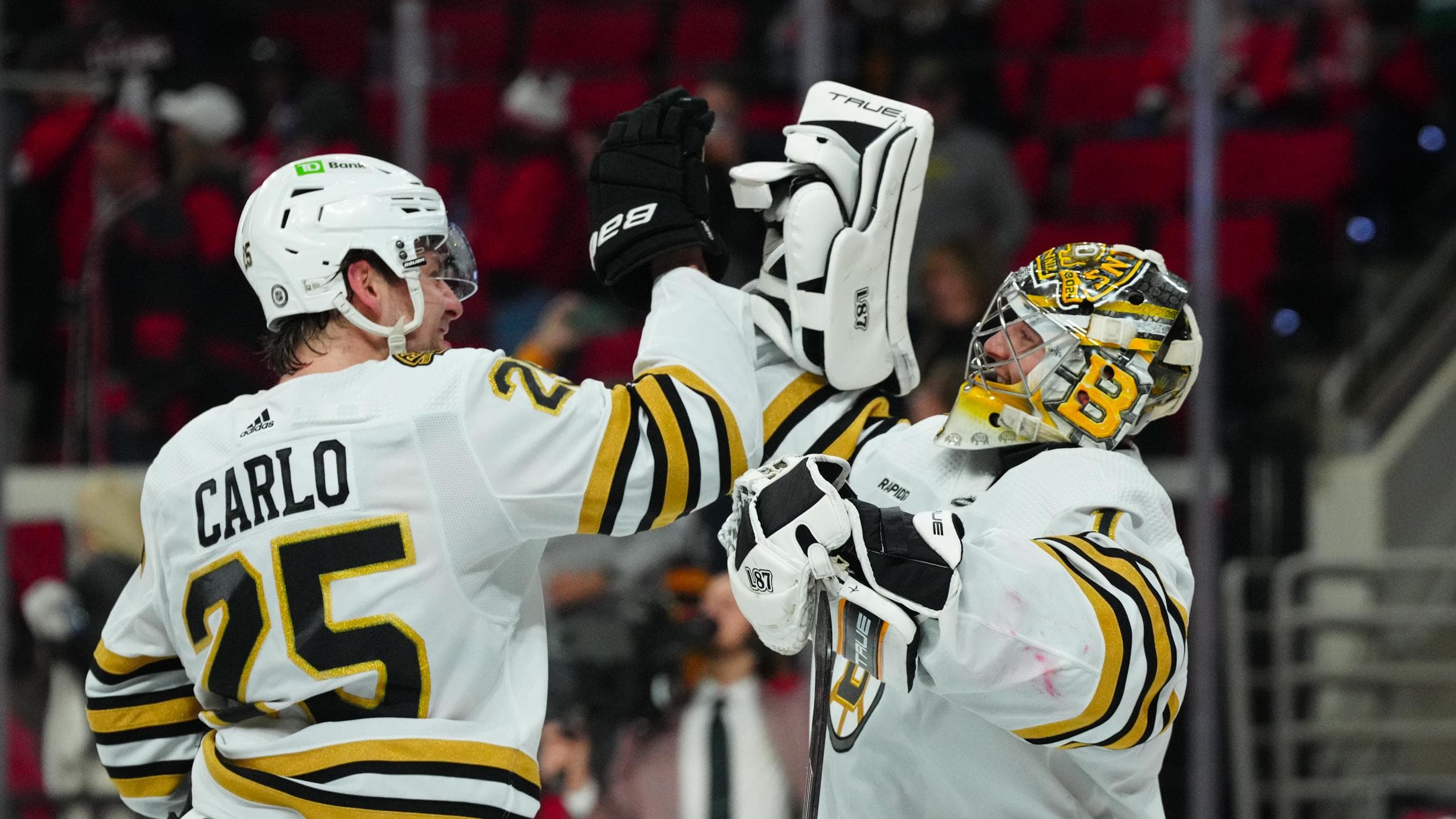New York Rangers coach Peter Laviolette had his in-game interview with ESPN’s Emily Kaplan upstaged by a shirtless Florida Panthers fan during his team’s season-ending, 2–1 loss to Florida at Amerant Bank Arena on Saturday night.
While there likely weren’t many things making him laugh on Saturday night, Laviolette couldn’t help but chuckle as the young Panthers fan flexed his biceps in the background, making it nearly impossible for any viewers to focus on the interview.
“How about this guy behind us?” Laviolette said with a laugh.
“He likes the interview more than you do,” Kaplan, perfectly playing off of the situation, replied.
Here’s the funny moment, courtesy of Bleacher Report‘s account on X, formerly known as Twitter.
The shirtless kid behind the Rangers bench is back, and Lavi chirped him on TV 😂 pic.twitter.com/619OkgZLhN
— B/R Open Ice (@BR_OpenIce) June 2, 2024
Laviolette proceeded to conduct the interview, as the young Panthers fan continued to go full muscleman in the background.
Then, after the interview was finished, the Rangers coach bumped the glass in front of the young fan before walking back to the bench.
Unfortunately for Laviolette, the flexing fan was the one who went home happy, as the Panthers advanced to the Stanley Cup Final, where they will await the winner of the Dallas Stars-Edmonton Oilers conference finals series, which Edmonton currently leads 3-2.
